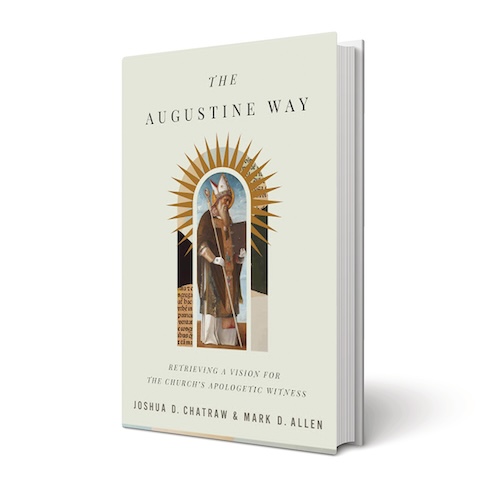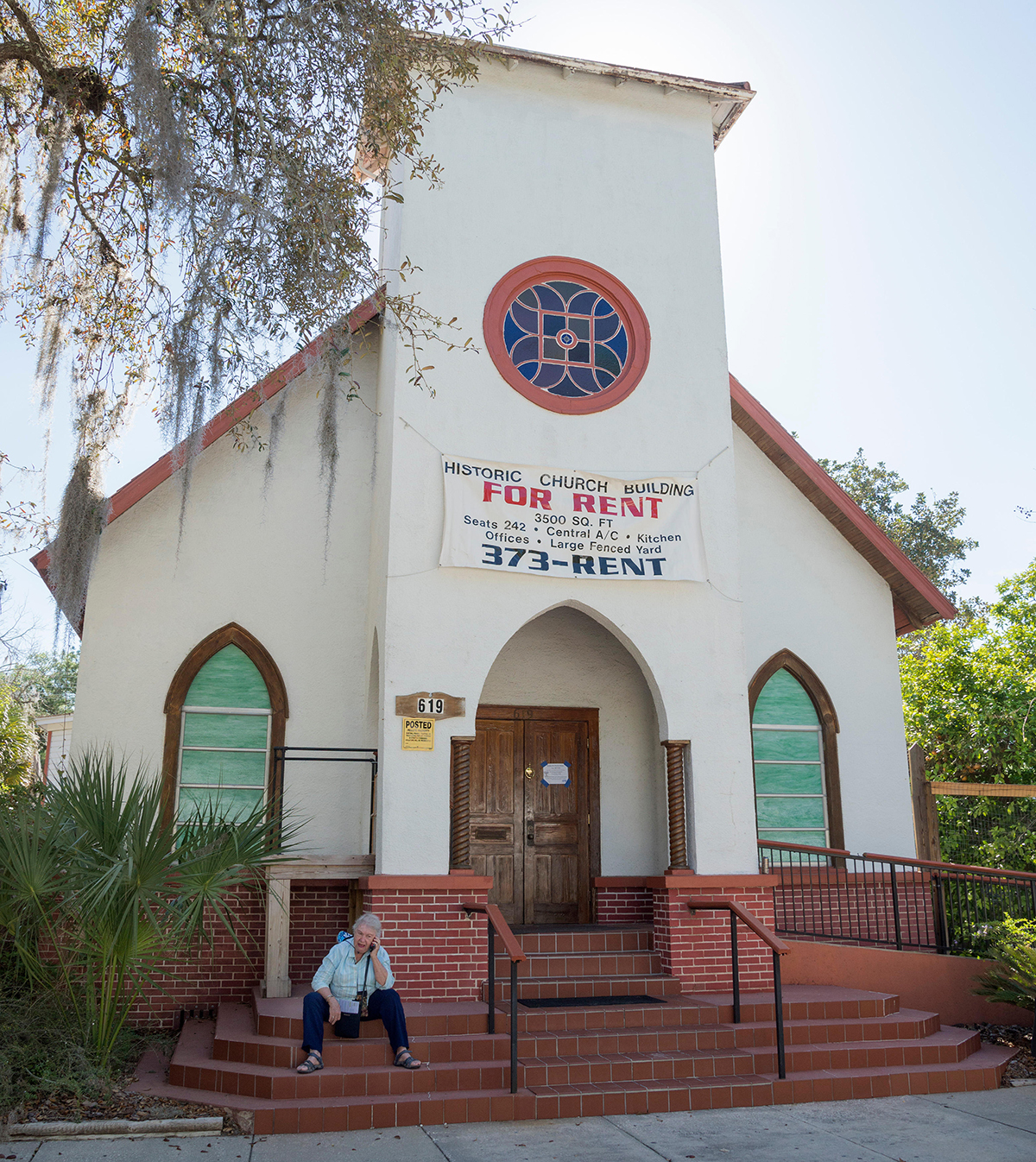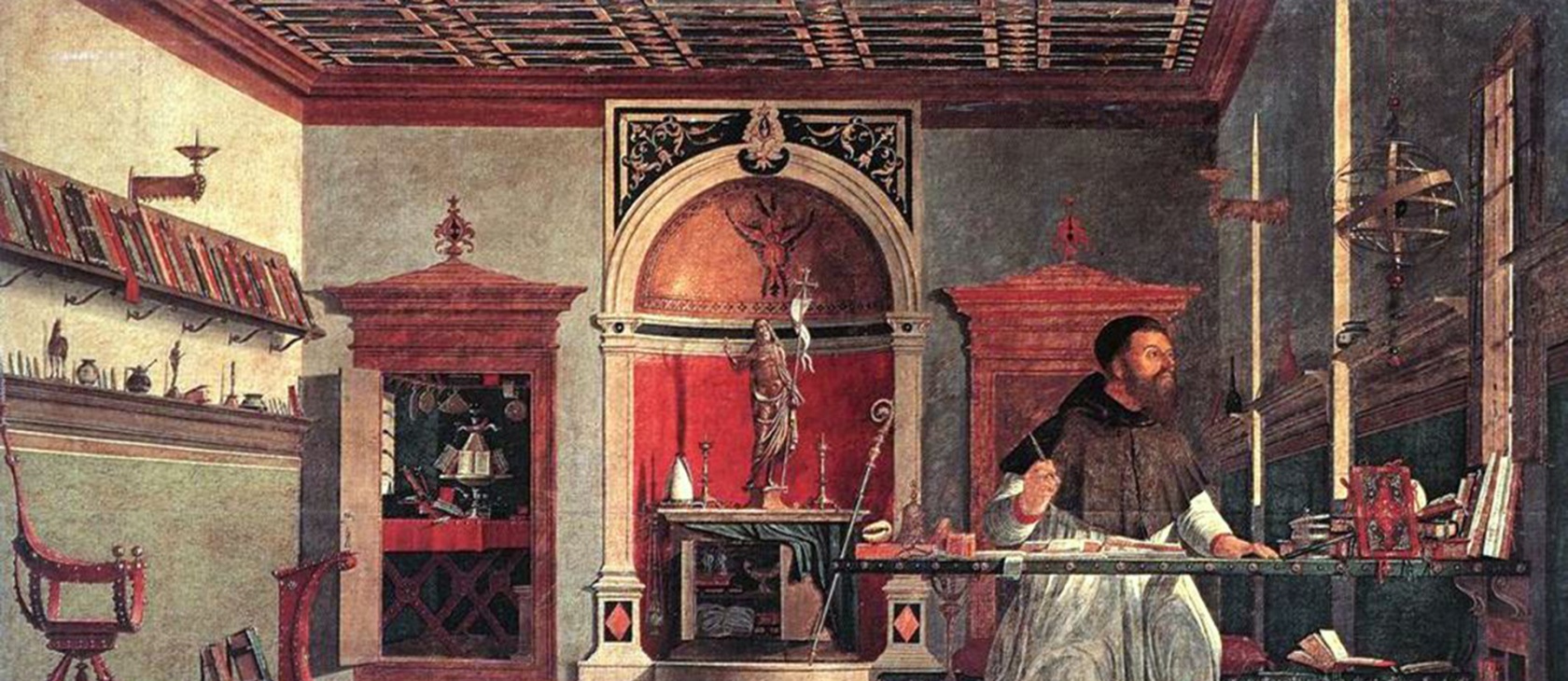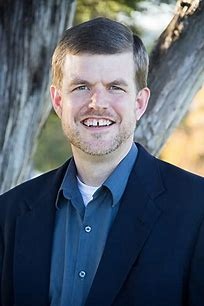Joshua D. Chatraw and Mark D. Allen’s The Augustine Way: Retrieving a Vision for the Church’s Apologetic Witnessaddresses two questions of major importance to churches and clergy: How do people become Christians? And just as important, how do they stay Christians? In today’s rapidly secularizing West, these questions are perhaps more perplexing than they have been for a millennium and a half. Chatraw and Allen suggest that St. Augustine provides a path for the renewal of apologetics in a post-Christian age.
With the rise of the nones and the deconstructed, the state of Christian apologetics would appear to be dismal. But must we travel back to the fourth century to find help?

By Joshua D. Chatraw and Mark D. Allen
(Baker Academic, 2023)
For centuries, most people in Europe and America were simply assumed to be Christians, by virtue of ethnicity and baptism as infants into the church. Few people before the modern era thought in terms of choosing to be Christian. Being Christian, they believed, was a default cultural inheritance.
The Protestant Reformation introduced a major aspect of choice in Western religious affiliation (are you Catholic or Protestant?). Then in the 1700s, the evangelical movement began emphasizing an individual believer’s choice to receive God’s gracious offer of forgiveness. Baptists argued, for example, that baptism was biblically intended not for infants but for believers who had consciously experienced Christian conversion. Still, well into the 20th century there were many places in Europe and the Americas where “Christian” was more of a cultural identity than a chosen individual identity.
Controversies over the Reformation and intellectual trends associated with the “Enlightenment” likewise made skepticism and unbelief live options in ways they had not been since Christianity became the Roman Empire’s official religion in the late fourth century A.D. In the 1700s, outright atheists began to appear in France. The Francophile and onetime American Patriot leader Thomas Paine, a deist, launched a venomous attack on Christianity and the Bible in his polemic The Age of Reason (1794).
Few people followed Paine’s lead into full-blown anti-Christianism, but observers in the West were becoming increasingly aware of arguments against belief. This shifted the range of what was spiritually and intellectually conceivable. Religion slowly changed from a matter of communal identity to an individual decision. This was not always a bad thing for Christianity, because a chosen religion tends to cultivate more zealous followers than a purely inherited one.
Nevertheless, pastors increasingly faced the problem of prospective congregants treating church like a product in the marketplace. A person or family might choose your church and become faithful long-term parishioners. Or they might go to another church. Or they might focus on their kid’s sports team. Or they might sleep in. Now religion was up to the “consumer.”
In this climate many churches have struggled to know how to persuade people to adopt an enduring Christian faith. This problem has fueled the veritable collapse of mainline denominations in America since the 1960s. Many, such as the The Episcopal Church or the Presbyterian Church (U.S.A.), have long mimicked the progressive posture of elite secular culture. In doing so, they’ve discovered that if a church offers nothing culturally distinctive, it’s likely to become irrelevant. Many conservative denominations in the West are struggling, too, though not to the same extent as the mainline.
As The Augustine Way suggests, in recent years Western culture has also produced increasing numbers of “deconstructed” Christians and “nones,” or people who say they have left the faith or have no religion in particular. Pollsters and the media have undoubtedly exaggerated these trends, as the alleged decline of Christianity has been “hot” news in America almost since the Pilgrims stepped off the Mayflower.
Still, more people than ever will tell pollsters today that they have no religion. For churches, these folks seem virtually unreachable. It’s not that they are choosing not to attend; it’s that they never consider attending. Among segments of European and North American people, nonadherence is now almost as assumed as Christianity was in 1500. Many “nones” find it obnoxious if a Christian neighbor or relative even hints they should consider Christianity’s claims, because they see their spiritual identity as wholly private and self-fashioned.
Pastors increasingly faced the problem of prospective congregants treating church like a product in the marketplace.
Similarly, the “deconstructed” are those who grew up with a Christian inheritance and perhaps went through a devout Christian phase. For example, Chatraw and Allen give significant attention to Rhett McLaughlin, a former staffer and apologist with Campus Crusade for Christ, who is now a prominent YouTuber and nonbeliever. Social media has made it easier than ever for deconstructionists to publicize their journey to nonbelief.
Chatraw and Allen believe that the church today flounders to answer legitimate questions about faith asked by prospective and former Christians such as McLaughlin. The authors are especially doubtful that Protestant “apologetics ministries,” such as one led by the prominent philosopher William Lane Craig, are up to the challenge. This is not because Craig and other apologists lack sincerity or zeal, but because they hold (according to the authors) a flawed view of why people are Christians. Chatraw and Allen further believe that apologetics ministries are generally too detached from individual congregations to help regular churchgoers persevere.
Contemporary Christian apologists and pastors would profit, the authors suggest, from a deep reading of Augustine. Augustine offers at least two advantages over today’s common brand of apologetics. One is that Augustine’s apologetic situation in late fourth century North Africa, a time when Christian commitment was hardly a cultural norm, is similar to today’s climate of contested faith.
Second, Augustine was primarily a pastor, so his apologetics were framed by and in the church, not in a “parachurch” ministry. Augustine reminds us that apologetics are as much for God’s flock as for outsiders. Chatraw and Allen suggest that the deconstructionist phenomenon might be mitigated if the church had a deeper, well-rounded Augustinian view of apologetics.
At one level, it is hard to argue with The Augustine Way. What Christian wouldn’t profit from reading Augustine more? And Chatraw and Allen offer insightful analysis, aided by Augustine, into why people do or do not become Christians. Some of today’s apologetics do seem designed only to persuade the persuaded. If you already are inclined to see the Bible as true and compelling, then you readily receive claims about (for example) how uniquely well-documented Jesus’ life is in the context of the ancient world. If you’re not so inclined, then you’ll be more impressed with arguments against the Bible’s reliability, emphasizing problems regarding the authorship and dating of the Gospels, for example. This tends to leave people talking past each other, if they talk at all.
Augustine was primarily a pastor, so his apologetics were framed by and in the church.
Rational analysis is certainly part of most people’s decisions to be Christians, but the cognitive aspect is only a part of a complex matrix of spiritual, social, and dispositional factors. Following scholars such as Charles Taylor, the authors suggest that people’s decisions to become Christians relate to the “social imaginary.”
They define the social imaginary as “pre-reflective assumptions that shape our loves, provide the framework for what is believable and what is unbelievable, and contribute to the context for which arguments and evidence are meaningful and which are insubstantial and unconvincing.” The rational apologetic for Christianity is indeed true and powerful. But if a person’s loves, dispositions, and relationships all steer them away from following Jesus, then he/she simply won’t believe. It doesn’t matter how well you state the argument for faith.
The Augustinian model of apologetics acknowledges the value of rational argument, but it focuses as much on relationships and the affections. As Bob Dylan once sang, you’ve “Gotta Serve Somebody.” So the Augustinian apologist asks: Who will you serve? Who will you worship? What or who will you believe in? Most of humanity’s self-crafted answers to these questions have led to meaninglessness and despair. Augustine’s Confessions is arguably the greatest extrabiblical narrative of a person’s quest for peace, love, and reconciliation with God and others. Thus, Augustine’s story complements the rational dynamic (is the Resurrection true?) with the affective and relational, conscious of the multifold issues involved in a person’s conversion and endurance.
I’m not as convinced as Chatraw and Allen that Augustine is especially valuable because his culture was similar to today’s. One could make a similar argument as The Augustine Way about authors such as C.S. Lewis and J.R.R. Tolkien, or pastor-theologians such as John Calvin or Jonathan Edwards, who all addressed the heart and the mind in their writings. These writers lived in times of much more pervasively Christian culture than we do today, but that did not undercut their ability to make apologetic contributions of enduring value.
I tend to think that Chatraw and Allen are really just saying that the great tradition of Christian theology, in which Augustine holds a special place, has powerful resources for today’s church in thinking about how people become Christians and stay Christians. To that I say a hearty “amen.”

I’m also not as inclined to dismiss the value of today’s apologetics ministries. It’s true that those ministries often attract more of a Christian audience than a non-Christian one. Their appeals to reason will not persuade unchurched and de-churched people who are simply disinclined to believe. But there are also some wavering people who would consider becoming Christians if they felt like it was intellectually viable to do so.
For instance, I know of one professor’s recent conversion to Christian faith that hinged largely on the plausibility of the Resurrection. This may not be a typical case, and even in this convert’s experience it’s not the “whole story” behind the conversion. But we do need certain Christians to make an evidentiary case for Christianity’s truth, even as we realize that people don’t respond mechanistically to warrants for belief alone.
The Augustine Way deals little with people who become Christians by responding to the apologetics model that Augustine exemplified. But reading the book spurred me to think about the myriad ways that people do, in fact, become Christians, and the reasons why people stay faithful to God and the church. Some people, like the academic convert mentioned above, experience a mostly rationalist conversion. Yet even the most rationalist convert is typically persuaded in relationship with Christians.
I’ve also known several fellow church members who became Christians amid ordeals of drug abuse. Their conversions reflected a desperate need to be “saved” by God out of their sin and wrecked lives. Some of these converts are also interested in apologetics, but they wouldn’t put rational appeals front and center in their stories. For them, hope for deliverance complemented the appeal of Christian community and assent to the historic truth of Christianity.
Likewise, perseverance in the Christian faith normally happens in the context of loving, supportive churches and families. “Deconstruction” stories, conversely, often feature relationships with professing believers who proved to be hypocritical or un-Christian.
Amid the endless scenarios in which people can become Christians, however, we shouldn’t forget that God is ultimately behind every instance of conversion and perseverance. As Augustine explained, the city of man is our natural home. He wrote that “love of self, even to the point of contempt for God, made the earthly city.”
The great tradition of Christian theology tells us that the earthly city, with its fleshly pride and contempt for God, is the default state of humankind. No person can fundamentally change their disordered affections, or their heart’s malign inclinations, without God’s power.
No matter how blasé or hostile an unchurched or deconstructed person may be, God’s grace can change him or her instantly, as it changed Saul on the road to Damascus. Christians should always be “prepared to make a defense [apologia] to anyone who asks you for a reason for the hope that is in you,” as 1 Peter 3 instructs us. But no matter how sophisticated or culturally sensitive that apologetic is, it won’t penetrate to the heart unless God moves. That was true for Augustine, and it’s also true for lesser apologists like us.








